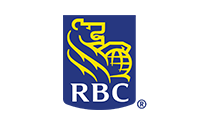
2020 will definitely go down as a year to remember. If there was ever a year that challenged our personal resilience and that of teams it was this one. With the COVID 19 pandemic, working from home; lockdowns and systemic racism issues it was a tough one. Resilience is often thought of as the “ability to bounce back”. However, it is much more than that. It is the ability to persevere through difficult challenges while adapting, growing and learning. Team resilience is the “collective capacity to perform optimally while maintaining wellbeing, adapting to change and positioning for sustainable success in a challenging world”. (Kathryn McEwen: Resilience at Work – a Framework for Coaching and Interventions, White Paper). With the second wave of the pandemic upon many countries, the ability of leaders to cultivate team resilience will be of critical importance as we move into 2021.
Tips and Strategies for Building TEAM RESILIENCE
- Encourage team members to take a “realistic” perspective. Focus on what they can change and try to reframe challenges as “opportunities”. Have them recall stories of challenging times in the past that they overcame.
- Be aware of your own and other team member’s emotions and behaviours. Establish team norms around communication, conflict to build trust. Practice empathy and really listen to understand the challenges others face.
- Ideally, align an employee’s purpose with the organization’s purpose and values. Ensure the team has a shared purpose. Continue to build on the employee’s strengths. Ensure their work is meaningful to them. Also, ensure your team is aligned around their stakeholder expectations to define core priorities and optimize resources.
- Make opportunities to build “social connections”. Encourage your team to continue to celebrate milestones and connect informally to make up for the lost “water cooler’ talks in the workplace. Ensure the team holds themselves accountable for supporting one another and check in with each other.
- Have your team discuss ways in which they can manage their physical energy. What self-care practices are they doing? How can they support one another with managing home and work boundaries? Can organizational or cultural practices be changed such as 50-minute meetings to ensure breaks between video conference calls; meeting-free Fridays; core office hours etc.
Resilience Capability Model - Roffey Park, 2016


















